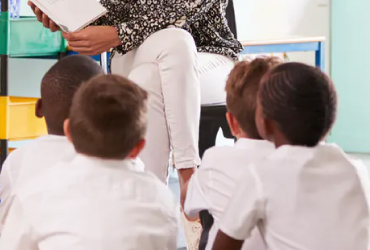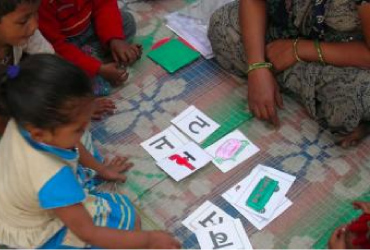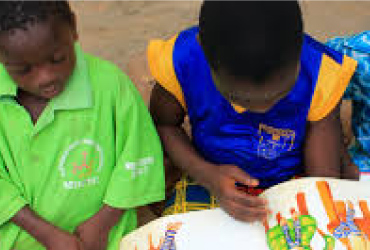Helping Children With Special Needs Transition to Kindergarten
Teacher-tested tips for preparing children in early childhood special education for kindergarten.
The transition from a small early childhood special education (ECSE) class to kindergarten can be exciting yet overwhelming for students with disabilities and their families. Students face a lot of adjustments: a longer school day, a larger class size, new classmates, and new teachers.
For the past five years, I’ve worked with dozens of children and their families to help them adjust to this new environment. I’ve learned that the following strategies facilitate a smooth transition, decrease students’ anxiety, and prepare them for success.
USING SOCIAL STORIES
Social stories were developed for higher-functioning students with autism; however, they can be helpful for students with other disabilities as well. According to Carol Gray, the creator of social stories, the goal of a social story is to “share accurate information using a content, format, and voice that is descriptive, meaningful, and physically, socially, and emotionally safe.”
Social stories should include descriptive sentences (“Next year, I will be in a new classroom with a new teacher and new rules”), perspective sentences (“I may feel scared or nervous in my new classroom”), directive sentences (“I will work on learning the new rules and listening to my new teacher”), and affirmative sentences (“My new teacher will be happy when I follow the new rules”). For preschool-age children, pictures also can make the story more comprehensible.
The following is a social story I have used with my students.
Too Loud in Kindergarten: I am going to kindergarten. I will have a new teacher. I will have lots of new friends in my class. I will play in the gym with my class. I will play instruments in music class with my class. I will eat lunch in the cafeteria with my new class. I will learn in a big classroom. It may be loud in kindergarten. It may make my ears hurt and make me cry and yell. Crying and yelling may make my teacher and class feel sad or scared. Headphones can help me calm down when it is too loud. I will work on asking for headphones when it is too loud. It will make my teacher and class happy when I ask for headphones. It will make my teacher and class happy when I am happy and calm.
TRANSITION IEP MEETING
Although there are currently no laws requiring schools to have a transitional individualized education program (IEP) meeting when a student exits an ECSE program, it can be helpful for the kindergarten staff and families to hold such a meeting. These meetings allow the ECSE and kindergarten special education staff to collaboratively create a transition plan and IEP that will support and meet the needs of the student. Depending on the situation and the school’s setup, it may also be beneficial to have a general education kindergarten teacher attend the meeting in order to answer the family’s questions, discuss accommodations and modifications, and make a plan for inclusion.





